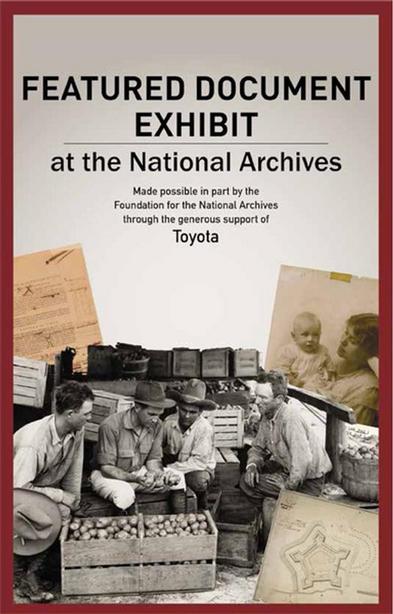Preserving the Right to Free Speech -- and a Lot More
 |
Washington, DC -- August 14, 2014; Freedom of speech. Freedom of the press. The free exercise of religion. And that’s just part of the First Amendment.
The Bill of Rights embodies the liberties many Americans take for granted, but luckily they’ll get their chance to review this historic document when it goes on public display this week, thanks to a $100,000 gift to the National Archives Foundation from Toyota.
“Toyota is proud to help preserve such a defining document, which in many ways is the basis of our democracy,” said Michael Rouse, President of the Toyota USA Foundation. “We believe this is a perfect way to give back to society and contribute in a meaningful way to the rich history of our nation where we have invested for nearly 60 years.”
Toyota's gift to the National Archives has thus far supported the display of historical documents such as the GI Bill and President Richard Nixon's resignation letter. The Bill of Rights is one of ten such historic documents that will be on display at the National Archives over the coming months.
Throughout its display at the National Archives and after it is removed from display, visitors can still view and learn about the Bill of Rights online at archivesfoundation.org/documents/bill-of-rights/ thanks to support from Toyota.
### About The Bill Of Rights Ratified in 1791, the first ten amendments to the U.S. Constitution were written by James Madison to address concerns held by Anti-Federalists regarding the Constitution’s ability to protect individual liberty. The Bill of Rights lists specific limits on the power of government, and the meanings of various clauses within the document have been debated extensively, most notably in Supreme Court decisions of the 20th and 21st centuries.
These ten amendments include landmark alterations of the U.S. Constitution, such as the freedom of speech, the freedom of the press, and the right to free assembly.


